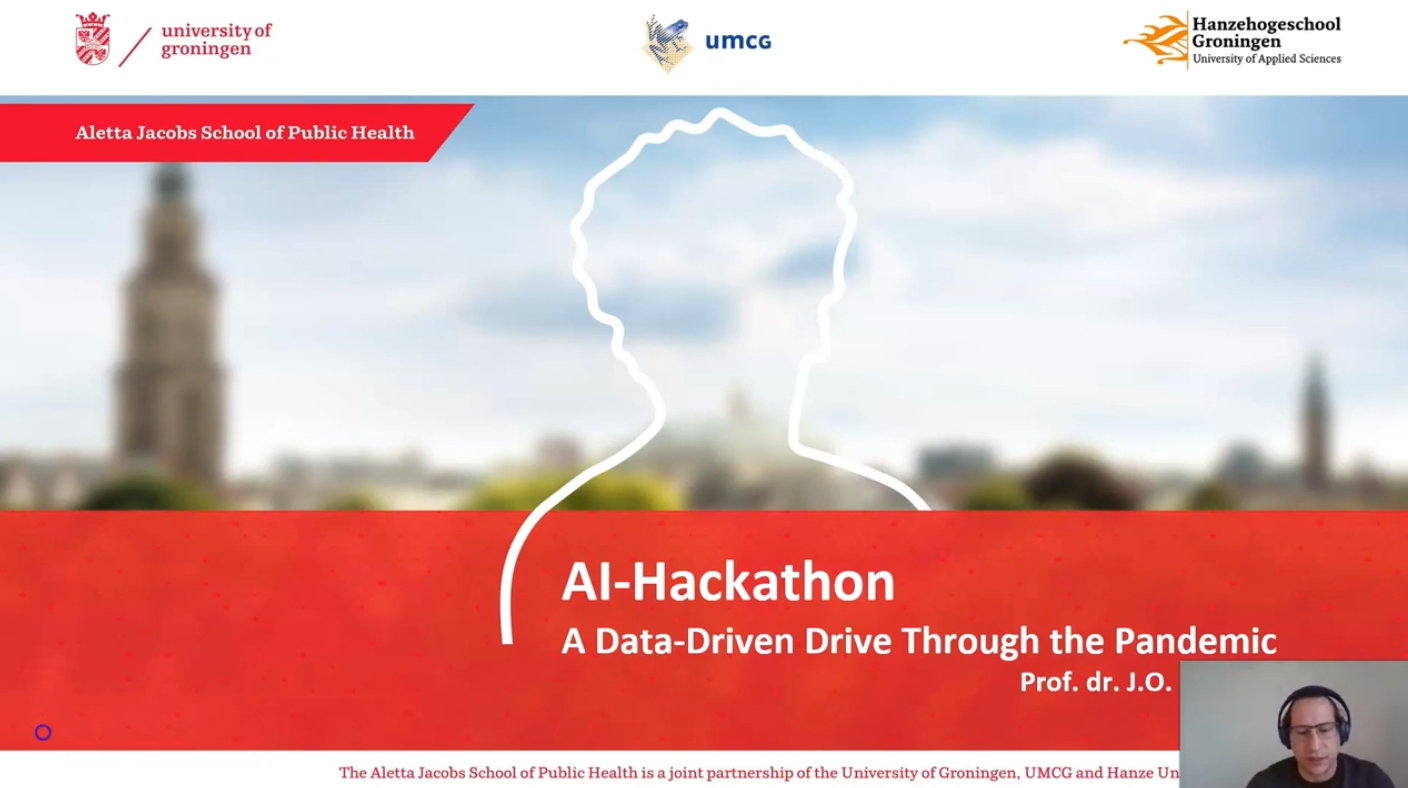AIHACKCOVID | Outcomes and winning team

From 24 - 27 June, AIMED, COVER, and IFMSA Groningen hosted aiHackCovid, the online AI - COVID-19 hackathon. Talented students and staff from a variety of fields in AI, computer science, and epidemiology took on COVID-19 and found fascinating patterns in pandemic data.
The event featured a Kick Off keynote from Prof. Jochen Mierau (Scientific Director at Aletta Jacobs School of Public Health ), presenting workshops from antifragility architect Edzo Botjes, a Dance Off competition, and a keynote from Maarten van Reek (business intelligence developer). In addition, the hackathon aimed to introduce the hackers to new career opportunities in AI and Health via a networking event. The Data Science Center in Health (DASH) of the UMCG , BD , ZIUZ , FruitPunch AI and AI consultant Bobby Bahov met with the hackers and presented how their organisations apply AI.
The final presentations from the hackers were innovative, validating which policy measures were effective like mask wearing and showing new insights into when policies should be implemented. All of the teams impressed the judges with their thorough explanation of their machine learning techniques and their analysis which they accomplished in only 48 hours.
Judges Eline Meijer , (DASH), Prof. Gerton Lunter (Medical Statistics), and Dr. Valentina Gallo (Epidemiology and Sustainable Health) made the challenging decision to award Team 3 as the final hackathon winner. Below is the summary of their results, the repository link with their code and presentation, and their profile links.
Summary of results from winning team:
According to the winning team, most important epidemiological factor that affects COVID-19 cases/deaths is age. In other words, aged societies are more vulnerable to COVID-19 infection than younger ones. They also developed a model based on the Prophet time-series prediction algorithm (Taylor et. al 2018) to assess policies related to closing schools and workplaces in different countries around the world.
The predictive model verified the important efficacy of closing both schools and workplaces in reducing the number of COVID-19 cases. The model can indicate when the best time is to shut down schools and workplaces to reduce the number of COVID-19 cases. In addition, they also observed that the premature relaxation of these policies may result in an increasing number of cases. So, policy relaxations must be done wisely at the right time.
Go to repository with code and presentation slides
Team members:
More news
-
17 November 2025
Artificial intelligence in healthcare
-
04 November 2025
AI Factory in Groningen advances digital sovereignty
-
03 November 2025
Menopause in perspective: How the media influences our perception
